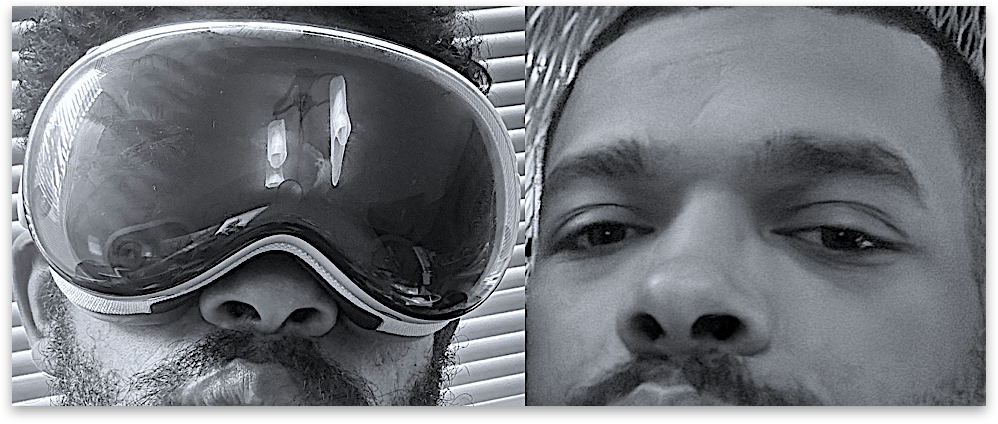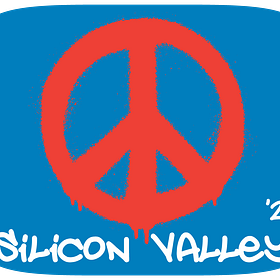Steph Curry Ink, the AI chip race, Jony Ive update, robotaxis and robosex, 16 bio-hacks for longer life, and more...

There is an excellent scene in a Fast Company post where Tiffany Williams, the COO of Thirty Ink, the parent company of Steph Curry's many commercial endeavors, reviews the logistics of a series of events in New York City this fall the basketball superstar will attend. From a Fashion Week event with the Japanese tech conglomerate Rakuten to promote Black designers, a visit to JPMorgan Chase CEO Jamie Dimon's suite at the U.S. Open, to a KPMG-sponsored golf tournament in New Jersey for Curry's Underrated Golf business, which helps student-athletes from underserved communities. Then on to a weeklong trip to China with Under Armour, and then back to LA with his wife, Ayesha, for a four-day shoot of the HBO Max celebrity-couple reality TV show About Last Night, which they created and co-host.
Of course, Steph Curry's main job is as the captain and point guard of the Golden State Warriors basketball team. He has led his team to four championship rings and is viewed as the greatest shooter of all time. Ooozing with style and grace, many see the 'Baby Face Assasin' as the face of the NBA.
It's not a bad platform to become a billionaire. Athletes from all sports have been inspired by Michael Jordan's example, who built an empire that was reported to be worth $3.2B and became as much of a GOAT off the court as on. Right behind MJ is Lebron James and now Steph, and others such as Kevin Durant (Thirty-Five Ventures), Serena Williams (Serena Ventures), and Tom Brady, who are all making VC bets, creating production companies, and backing consumer goods such as booze and wellness products.

Along with Unanimous Media, Underrated Golf, Thirty Ink (a reference to his jersey number), there is Under Armour's Curry Brand, the Underrated Basketball tour, a bourbon brand called Gentleman's Cut, and his family foundation with his wife Ayesha, Eat. Learn. Play., which aims to improve the diets, educational opportunities, and sports facilities for kids in Oakland. Steph is also one of the founders of San Francisco's professional golf team in the forthcoming TGL golf league created by Tiger Woods.
All in all, Steph stands to join Tiger Woods and LeBron James as one of the only athletes ever to reach billionaire status while still actively playing his sport. His NBA contracts alone total nearly half a billion dollars to date.
It's a delight and inspiration to see a faithful family guy win big across all his passions— basketball, business, and social causes—and we are grateful to have Steph as a wholesome and joyful role model for our kids. Steph, as Dubs fans, we thank you for the great entertainment. Go get those Kings! 🏀
Did you know?
(Overheard on the streets of the global Silicon Valley. Got any hot insider tips? Email us editor@cryptoniteventures.com)
VC Whispers
Legendary VC Vinod Khosla’s fund is leading a $33M Series A bet on former Tesla autopilot engineer George Morgan and his new AI startup Symbolica AI. With a long history of swinging for the fence on breakthrough new technologies and models, Vinod, the second wealthiest VC on the planet, is betting on Symbolica AI’s different approach to building AI models compared to those offered by companies like OpenAI, Google, and Anthropic.

Rather than relying on scaling up large language models using massive amounts of data and computing power, Symbolic AI is developing a new architecture based on category theory that aims to create smaller, more efficient models capable of structured reasoning.
“We use the powerfully expressive language of category theory to develop models capable of learning algebraic structure. This enables our models to have a robust and structured model of the world; one that is explainable and verifiable. It’s time for machines, like humans, to think symbolically.”
—George Morgan on the Symbolic AI model
Silicon Valley '24—Coming live this summer!
Join us at Silicon Valley ‘24 this summer in Silicon Valley and broadcast around the world. The dates and location are to be announced soon. Sponsored by Draper Associates & Draper University and produced by Cryptonite Ventures.
AI Tracker
OpenAI CEO Sam Altman and former Apple design chief Jony Ive are teaming up to raise $1B for a 'secret AI device' company that challenges the current smartphone convention. OpenAI investor Thrive Capital and Emerson Collective—Laurene Powell Jobs's VC fund—are reviewing the deal. Insiders point to Humane's AI Pin (where Sam is an investor) and Rabbit R1 as hints to the direction the unamed company is headed with its product.

This project is yet another very high-stakes, complex project Sam has taken on, which fuels our skepticism about his ability to run OpenAI, which includes being the founder of the fledging Worldcoin and a trillion-dollar initiative to develop and manufacture AI chips.

Meanwhile, Elon’s xAI introduced its first multimodal model. ‘Grok-1.5V is competitive with existing frontier multimodal models in a number of domains, ranging from multi-disciplinary reasoning to understanding documents, science diagrams, charts, screenshots, and photographs,’ says an xAI company blog post.
xAI highlights examples of Grok-1.5V’s new capabilities, such as transforming a whiteboard sketch of a flowchart into Python code, generating a bedtime story from a kid’s drawing, explaining a meme, converting a table into a CSV file format, and identifying if your deck has rotten wood and needs replacing.
A cool new AI program called Vitruvius by ICON Build can help people design plans for new homes and other architectural projects, potentially making the process faster and cheaper. ICON Build is a construction technology company that has also developed 3D printing technology for building homes.

Going Green
Long ago, Elon proclaimed that self-driving vehicles would be one of Tesla's most substantial auto lines and a $150B opportunity. Now, he can the opportunity to prove his forecast because Elon posted on X this week that Tesla's 'robotaxi' will finally be unveiled on August 8. The cars will operate as fully autonomous taxis and could earn money for their owners by giving others taxi rides.

Currently, the new Tesla Model 3 offers full self-driving capability for an additional $12,000, which is added to the car's purchase price of roughly $40,000 or to be paid for with a $199 monthly subscription. The currently enabled features require active driver supervision and do not make the vehicle autonomous today.
'Tesla will enter at the high end of the market, where customers are prepared to pay a premium, and then drive down-market as fast as possible to higher unit volume and lower prices with each successive model."
—Except from Elon's 'secret Tesla Motors master plan' in 2006.
Hawaii is becoming a leader in US EV adoption, ranking fifth in new retail vehicles sold through February, according to JD Power. Why Hawaii? Mainly because of high fuel costs, availability of renewable energy, and a rising eco culture. Hawaii also ranks third—behind California and Washington—' EV Adoption Score,' which weights market, consumer preference, and EV availability, among other conditions. US consumers' move to all-electric vehicles is more slowly than many expected.
In the Chips
According to Bloomberg, Apple is nearing the production of its M4 computer processors, which will bring enhanced AI capabilities and performance improvements to Apple's Mac lineup. Apple promises to update every Mac late this year and early next year and include the M4 chip in the new iMacs, a low-end 14-inch MacBook Pro, high-end 14-inch and 16-inch MacBook Pros, and Mac minis. The aim is to reinvigorate Mac sales, which fell 27% in the most recent fiscal year ended September.

PC makers have been slumping since the end of a pandemic-era boom and are stalling their future growth hopes on the back of new-generation laptops and desktops with powerful AI chips. Intel and Qualcomm are gearing up to jump into the AI chip game, and Nvidia will all be in the PC market with a new chip as early as 2025.
Robots on the March
From blow-up dolls to 'built to satisfy' robots. A new robosexuality study says the desire to have sex with robots is related to a person's deeper views of power relations between people. People with a higher potential interest in robosex show higher levels of hostile sexism and social dominance orientation.

Men who tend to have anger and distrust issues with women, view gender relations as competitive and full of conflict, and see women as objects to use tend to be most interested in having sex with robots. Conversely, the results indicated that people with more open sexual attitudes were less likely to be interested in sex with robots, the opposite of what the researchers expected.
Straight outta Silicon Valley
We have been fans of the hands and fingers-free spatial computing vision behind the Apple Vision PRO but warned early versions would be costly and about smoothing out the kinks. Since February 2, 2024, some of the kinks of the virtual-reality headset appear to be black eyes, headaches, and neck pain, as the design 'clearly puts too much weight on my cheeks.

The most appealing use case for the Vision Pro is as an entertainment device—you can watch movies on a virtual cinema-sized screen.
Ming-Chi Kuo's recent report, which compiles from connections in Asia's supply chain, can suggest how well an Apple product is or isn't selling; by these metrics, the Vision Pro demand in the U.S. was 'slowing significantly.' The much-hyped launch wasn't the next era-defining iPhone moment Apple was dreaming. The biggest reasons for the slowdown in sales appear to be 'the ridiculously high $3,499 price point— you can buy three MacBooks—or three iPhone 15 Pros for that price, and limited unique selling point until some 'killer apps' are developed.
Gen Z—Bad hires and rough sex
Employers beware. The Gen Zer's report card for their professional behavior in work is in, and they received an 'F' grade in 'reliability,' 'teamwork,' 'divisive and toxic,' 'mental health,' 'workplace lawsuits, ' and 'fits workplace culture.' The 80,000 business owners surveyed all seemed to agree that the biggest problem with Gen Z in the workplace is their sense of entitlement.
A survey at a Midwestern university indicates a concerning trend in teenage boys demanding rough sex, including choking, from partners as young as 12. The study of 5,000 women, conducted by Dr. Debby Herbenick, one of the foremost researchers on American sexual behavior, showed that two-thirds of them women said a partner had choked them during sex, and 40% said it happened when they were between the ages of 12 and 17.

'Twenty years ago, sexual asphyxiation was unusual among any demographic. That's changed radically in a short time. The autoerotic asphyxia trend startled in early 2020 and has been normalized by porn, mainstream, and social media, and it's now reinforced in one big feedback loop. The risks of choking are very real and can lead to death or serious injury."
—Dr. Debby Herbenick is a professor at the Indiana University School of Public Health
Autoerotic asphyxia—when someone restricts oxygen to their brain for sexual arousal—isn't new, with cases documented since the early 17th century. Experts estimate that somewhere between 250-1,000 people die each year from autoerotic asphyxiation.
What the Math Says
Mother Teresa, who devoted her life to the poor and dying, once said, ‘Loneliness and the feeling of being unwanted is the most terrible poverty.”

Last year, US Surgeon General Vivek Murthy declared loneliness an epidemic, and social isolation was causing mental and physical harm. Teenagers are reporting record levels of sadness. Suicide rates are at a record high. While social isolation caused by Covid was a major factor in this rise, Dr. Murthy also noted the advent of smartphone technology and the rise of social media are big factors as well.

In a 2023 Meta-Gallup survey of people from 142 countries, more than half of respondents described feeling at least a little lonely. Nearly a quarter of respondents said they felt very or fairly lonely. A 2021 report from the Survey Center on American Life found that 15 percent of men today don’t have close friendships, a fivefold increase since 1990. One in five men in the US who aren’t married or in a relationship said they didn’t have any close friends at all.
Pura Vida (pure life)—Bio-hack your way to wellness and longevity
The idea of 'bio-hacking' conjures up visions of Cyborgs and implanting chips in brains, but we will leave all that stuff to enthusiasts like Elon. For our purposes here, bio-hacking is about safe practices drawn from the latest discoveries in biology, nutrition, and neuroscience to enhance physical and mental performance.

Bio-hacking is, of course, not our field, so we turn to our Pura Vida guru Dr. Frank Lipman for his recently published favorite bio-hacks we are honored to share in for the health and comfort of our readers.
Frank Lipman's Top 16 bio-hacks
Hack your nights—Sleep, as in 7 -8 hours every night as the sun goes down and the sun comes up. At night, your system gets busy repairing body and brain cells and 'taking out the cellular garbage,' which drives neurological decline and aging of the skin.
Shake a leg frequently—Regular exercise and movement throughout the day encourageges mitochondrial productioboostour energy levels, aleadads to a longer lifespan. Walking during phone calls, sitting on a balance ball when you worand k, even small movements can have a positive impact on blood vessels and blood sugar levels.
Hack your stress—Pray and meditate for just 5-10 minutes once or twice a day, which will help de-stress your body and mind and improve memory, processing speed, focus, and creativity. You'll also lower blood pressure and anxiety, reducing reliance on pharmaceuticals. Score!
Get chilly with it—Controlled cold, such as with cold showers and ice baths, stimulates the body's longevity gene pathways, increases mitochondrial production, reduces inflammation, boosts immunity, improves sleep quality, and increases your brown fat stores, which in turn burn extra calories.
The 'perfect plate' hack—Eat more by grabbing a big plate filled with veggies and packing your body with loads of nutrients while also countering the drivers of excess pounds: starches, sugars, and inflammatory ingredients from processed foods and factory-farmed sources. Find the perfect veggie-packed plate that will fill you up here.
Break up with sugar—Read Dr Frank's 24 sugar-kicking hacks to free yourself from sugar addiction. Eliminating sugar immediately boosts gut and brain function while improving blood pressure levels and cutting the risk of obesity, diabetes, heart disease, and even cancer. Go cold turkey on sugar
Don't eat round the clock—Time-restricted eating (eating within an 8-hour window) is a highly effective, metabolism-boosting hack. By extending the natural fast between dinner and breakfast, you'll prompt your body to make the most of what you consume, resulting in decreased blood sugar and insulin levels, less fat accumulation, and reduced inflammation.
Fill the gaps—Identify and take a few supplements such as a probiotic with at least 20 billion live organisms 1-2 grams of high-quality fish oil containing EPA and DHA, vitamin C, and D3 to help support optimal function of your body's many systems. Add B vitamins to boost energy and lift your mood.
Tune in— 'Brain entrainment' music, such as music made with embedded tones, aka 'binaural beats", can help boost alertness or energy levels; promote relaxation, put you in a meditative state, boost focus, enhance mood and/or encourage sleep.
Tune out—Getting out in nature, ideally in a green space, is a powerful hack for the brain that quickly soothes the body and eases the mind into a peaceful yet alert state that also boosts the production of crucial disease-fighting 'killer T-cells.' You'll also get a decrease in cortisol levels by activating the parasympathetic nervous system, which gives your prefrontal cortex a chance to unwind and recharge.
Turn on—Build and maintain intimate social ties if you want to live well for longer. Studies show that strong (and, of course, healthy) social connections may reduce premature death by 50%. Genetic research also suggests that social connection supports immune function, while isolation likely reduces it.
Hack your outlook—Optimism is more than just an outlook, it's a powerful head (and heart) health hack. Optimistic individuals have healthier hearts, brains, stronger immunity, and live longer compared to those who are less upbeat. Optimism is a practice, which, like maintaining a healthy diet or staying physically fit, you can get better at over time.
Thanks – for the hack!— Gratitude is a hack that lowers systolic and diastolic blood pressure and blood sugar, improves heart health and enhances immune function. Gratitude also triggers the release of mood-boosting neurochemicals such as dopamine, serotonin, and oxytocin while reducing the release of cortisol —also known as the stress hormone. Be thankful, people!
Wearable tech—Devices like continuous glucose monitors, smartwatches, and Oura rings are popular ways to effortlessly gather data about yourself and understand how your body responds to various factors like food, exercise, stress, and sleep.
Genetic testing—the bio-hack tool that provides valuable information about inherited health risks and arms you 'risk analysis' data to guide lifestyle, nutritional, and wellness changes that can help mitigate potential health risk factors.
Blood analysis—A lower—tech biohack alternative to genetic testing. It offers evidence about your present health by measuring key biomarkers and uncovering factors and deficiencies that may be contributing to illness.












